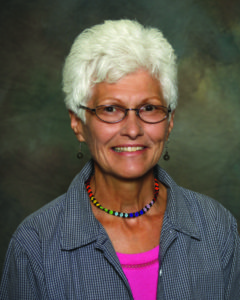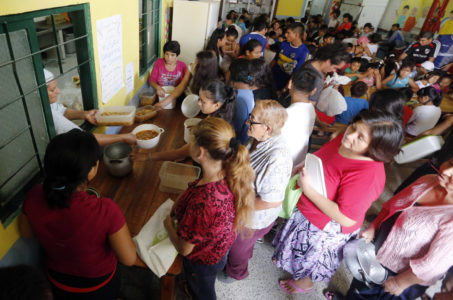Vacation Bible school wraps up in Vicksburg
St. Richard Vacation Bible school: mighty fortress
Madison Youth group gets drenched in summer fun
Eagle Scout completes garden
FLOWOOD – St. Joseph Catholic High School graduate and Eagle Scout, Will Foggo, helps children at the St. Paul Early Learning Center place and fill a bird bath in the garden on school grounds. Foggo designed and built the garden for his Eagle Scout Project. (Photos by Jennifer Henry)
Vatican releases survey prior to synod
By Carol Glatz
VATICAN CITY (CNS) – To involve young people in preparations for the Synod of Bishops on youth in 2018, the Vatican has released an online questionnaire to better understand the lives, attitudes and concerns of 16- to 29-year-olds around the world.
The questionnaire – available in English, Spanish, French and Italian – can be found on the synod’s official site: youth.synod2018.va/content/synod2018/it.html and is open to any young person, regardless of faith or religious belief.
The general secretariat of the synod launched the website June 14 to share information about the October 2018 synod on “Young people, faith and vocational discernment” and to link to an online, anonymous survey asking young people about their lives and expectations.
The answers to the questionnaire, along with contributions from bishops, bishops’ conferences and other church bodies, “will provide the basis for the drafting of the ‘instrumentum laboris,'” or working document for the assembly, synod officials said in January.
Young people from all backgrounds are encouraged to take part in the questionnaire because every young person has “the right to be accompanied without exclusion,” synod officials had said.
The list of 53 mostly multiple-choice questions is divided into seven sections: general personal information; attitudes and opinions about oneself and the world; influences and relationships; life choices; religion, faith and the church; internet use; and two final, open-ended questions. The write-in questions are an invitation to describe a positive example of how the Catholic Church can “accompany young people in their choices, which give value and fulfillment in life” and to say something about oneself that hasn’t been asked in the questionnaire.
Other questions ask about living arrangements; self-image; best age to leave home and have a family; opinions about education and work; measures of success; sources of positive influence; level of confidence in public and private institutions; and political or social activism.
The section on faith looks at the importance of religion in one’s life and asks, “Who Jesus is for you?” That question provides 16 choices to choose from, including “the savior,” “an adversary to be fought,” “an invention” and “someone who loves me.” It also asks which topics – promoting peace, defending human life, evangelization, defending truth, the environment – are the most urgent for the church to address.
The Vatican’s preparation for a synod generally includes developing a questionnaire and soliciting input from bishops’ conferences, dioceses and religious orders. This is the first time the Vatican’s synod organizing body put a questionnaire online and sought direct input from the public.



